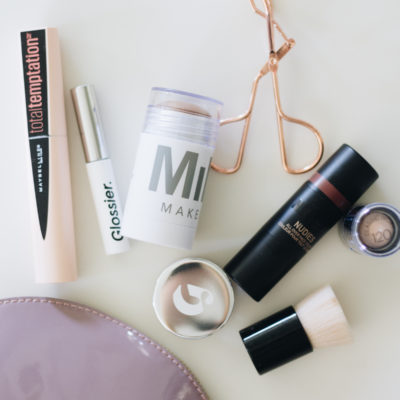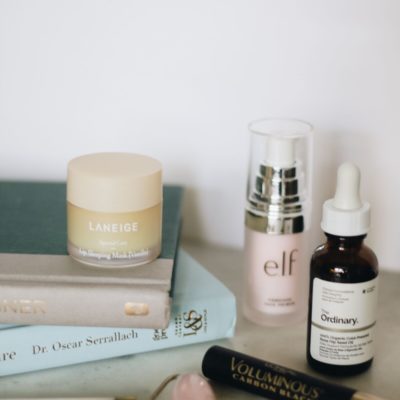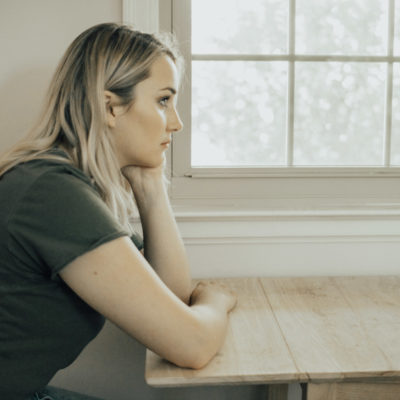The Best Books for Personal Growth (That Aren’t Self-Help)
posted on May 29, 2019 | by Sophia Ronga

I’m all for personal growth and self-improvement, but I have come to find self-help books to be… less than helpful.
I crave quantifiable correlations, concrete examples and copious citations on how X can help me do Y. Some self-help books provide that. Others are filled with cliched adages, telling me “If you can dream it, you can do it!” and encouraging me to “Always work harder!” When flipping through those pages, I’m usually wondering whether I’m reading an actual published work or my inspirational AIM away messages from the seventh grade.
The books that have helped me with personal growth? Biographies and memoirs, easy money. Read on to find out why!
Biographies provide templates for success
Biographies and memoirs are written about and by people who have actually done X and gotten to Y. Reading stories about others, the obstacles thrown at them and the ways they chose to overcome those obstacles, has often helped me gain perspective on how to react to my own experiences.
For example, Sophia Amoruso’s #GirlBoss helped me learn what it was like bootstrapping her way to CEO of a large clothing retailer. Her message, her path and her story has likely only become even more relevant as the number of women ditching traditional 9-5s and forging businesses on social media continues to soar.
Biographies and memoirs are so helpful in providing templates for successful paths, in fact, that a professor at the University of California-Davis, recommended reading a mix of different kinds of biographies. This mix allows exposure to a range of experiences and increases your likelihood of exposing yourself to one that’s applicable to your life and increase positive qualities, like creativity.
I recommend thinking about what sort of success you would like to emulate and then finding a range of biographies and memoirs that are relevant. For example, as a budding writer/ journalist/blogger/someone who tries to use words to get others’ attention, I found Walter Cronkite’s “A Reporter’s Life” to be a particularly helpful read. It’s not a perfect roadmap, per se, but it helped me understand what worked for him… and what didn’t.
Memoirs provide a perspective on personal failures
But biographies and memoirs aren’t always necessarily roadmaps for what you should do.
Of course, there have been times when memoirs have highlighted the mistakes and failures of others.
Recently, I finished “Small Fry”, by Lisa Brennan-Jobs. Does the second half of that last name look familiar? She’s Steve Jobs’ daughter, born prior to, or perhaps on the cusp of his superstardom, and her memoir details the inconsistent, often negative interactions that she had with her father as she grew. Spoiler alert: she rips him to shreds for his treatment of her.
The way “Small Fry” spoke of Jobs was slightly jarring, but that was the point. Biographies and memoirs don’t only cover the good, and that is their value. They cover the bad and the ugly as well, providing us with reminders that there are no perfect people and no perfect roads to success.
Recognizing failure is the first step in making a change to overcome it. Memoirs and biographies, when they are raw and honest about the experiences in someone’s life, can help remind us that there are consequences for actions and that those consequences often are not only affecting ourselves. They can be cautionary tales, concrete examples of failures, reminding us that it’s important to stay humble and prioritize what’s important (just in case we ever get as famous as Jobs, of course).
Learning about another’s experience increases empathy
Biographies and memoirs can also be useful even if they are nowhere near applicable to your life because they can show you just how different your life might be from others. There’s empathy in learning about those differences that others will appreciate.
A few months ago, I read “Even Silence Has an End” by Íngrid Betancourt, a memoir of her time held in captivity by the Colombian FARC. Prior to reading it, I knew little about life under military rule and dictatorships. But after reading the book, when a podmate of mine saw it on my desk, he opened up about how his parents were from Argentina and how they experienced life under a dictatorship.
The memoir didn’t give me every tool to solve all of the world’s problems, but it did arm me with the perspective to handle conversations like that.
Often, we are so caught up in what’s going on in our own lives that it can be hard to empathize when someone else goes through a hard time (harder still if the person going through a hard time is someone we don’t even know). Reading biographies and memoirs that detail the hardships of others can make even the most alien of hardships to us seem a bit more real. That gives us the perspective to empathize more with others – and I don’t know anyone who would say empathy is a bad thing.
Biographies and memoirs are stories of another life, ones separate enough from my own that they allow me to take a step back, make some connections to my experience, and learn through the successes and failures of someone I admire, despise, or am wholly unfamiliar with.
Which memoir or biography have you read recently? Let us know in the comments!
 Using Trunk Club to Update My Spring/Summer Wardrobe
Using Trunk Club to Update My Spring/Summer Wardrobe 5 Tips For Styling a Simple Summer Dress
5 Tips For Styling a Simple Summer Dress 5 Ways to Style a Bandana
5 Ways to Style a Bandana 3 Different Ways to Curl Your Hair
3 Different Ways to Curl Your Hair How to Master the 5-Minute Makeup Routine
How to Master the 5-Minute Makeup Routine Amazon Beauty Buys Under $25
Amazon Beauty Buys Under $25 3 Ways to Make Your next Trip More Memorable
3 Ways to Make Your next Trip More Memorable Tips for Digital Spring Cleaning and Organizing
Tips for Digital Spring Cleaning and Organizing Color Trend: Marigold
Color Trend: Marigold Mental Health Update: The 3 Major Changes I Made to Get Out of Depression
Mental Health Update: The 3 Major Changes I Made to Get Out of Depression 5 Unexpected Ways to Unwind After Work
5 Unexpected Ways to Unwind After Work How to Know You’re in a Controlling Relationship
How to Know You’re in a Controlling Relationship 4 Questions I get Asked as a Professional Resume Writer
4 Questions I get Asked as a Professional Resume Writer How to Make Friends at Work
How to Make Friends at Work Getting Out of the ‘Busy’ Mindset
Getting Out of the ‘Busy’ Mindset Ask Amanda: How do I pursue the career I want without formal training?
Ask Amanda: How do I pursue the career I want without formal training? Ask Amanda: How Do I Find a Therapist?
Ask Amanda: How Do I Find a Therapist? Ask Amanda: How do I stop being jealous in my relationship?
Ask Amanda: How do I stop being jealous in my relationship?



Ryan Says
I grew 2 inches taller at 28 and it basically changed everything for me. Anyone looking for a life changing confidence boost definitely check out heightify.com. They sell subliminal tracks that increase height at any age, which I didnt even think was possible.
Clare Wildman Says
Not a recent read but I found ‘It’s not what you think’ by Chris Evans an enlightening read. I’d nit realised just how hard he’d worked to get into radio. Neither did I appreciate the work and care he put into providing the show. I had a new found respect for him by the end and an appreciation of him as a individual.
Hannah Silva Says
I really enjoyed this post. I agree these are the best types of things to read for personal growth. I also find the self-help advice pretty shallow and prefer to follow others’ examples instead.
My blog is actually about sharing personal growth advice based on my own experiences to help other young women get some ideas on how to grow by following someone else’s failures and successes.
I definitely will write some of these books down on my reading list! Great post :)
Sophia Ronga Says
Great read! But I might be biased :)
Lynn Esther Says
I recently read The Last Black Unicorn by Tiffany Haddish. It is an amazing and hilarious read. It is enlightening how much she had to work to get to where she is. And it is truly inspiring that despite of her mistakes she was able to rise above them and become who she is today. Also, I would like to read interesting biographies by men. Any suggestions, since most of the ones I come across are women’s bios
Wilma Says
The Navigon app for Android provides the high-quality maps and routes we expect from a navigation tool bearing the Garmin brand, but the user interface detracts from the enjoyment. I was quite intrigued by the website at the time I made the decision to write my grademiners.com review I believed I had discovered a writing service that was quite skilled. But I also heard feedback that the service wasn’t giving kids the outcomes they were hoping for.
Betty Dawson Says
People, I’ve finally found my best essay writing assistance website. Speedypaper is as excellent in reality as in the Scamfighter review. A rare company can get closer to it in terms of paper quality and punctuality. I totally recommend this company to every student.
Mark Dallas Says
Interesting article with lots of useful information! But I love to
draw https://drawnbyhislight.com how to draw easily and simply my hobby!